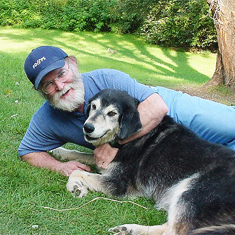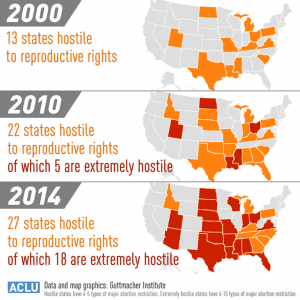 Some part of this is probably gonna make you uncomfortable, but I’m gonna just toss it out here anyway:
Some part of this is probably gonna make you uncomfortable, but I’m gonna just toss it out here anyway:
Robin Williams died today, of an apparent suicide. It’s strange how much it affects me. Years back when I was on vacation and Stephen Jay Gould died, I called home crying. That guy MATTERED to me. He was one of my people, a smart man and a scientist. The world was a colder, dumber, less interesting place when he died.
And now Robin Williams is gone.
On Facebook, a lot of people are posting and talking about this, and most of them are saying how great he was — as a comedian, a dramatic actor, a humanitarian, so much more.
But I’m also seeing a number of posts about depression and mental illness, along the lines of “Anyone can suffer from depression, etc.” About how terrible it is. About how none of us really understands what people with depression and mental illness are going through.
And yes, I agree with that. Hey, I had it. There was a year, back in about 1985, when I got so far down I felt … nothing. No feelings at all. I didn’t even feel suicidal, because that would have taken effort, and I just didn’t have the juice.
There is a depression beyond anything normal people know about. It’s like a black beyond black, a whole new spectrum of darkness that opens up once you get past all the colors and the light goes out. It’s the depression of no energy, no emotions, a place where even pasting an expression on your face is something like lifting heavy weights.
I was there for most of a year.
And then I got better. Part of it was getting a dog, something I had to rouse myself to care for. Another part, a big part, was I had my supportive, patient Cowboy Dad. (If you don’t know who that was, it’s a whole other story.)
But another part of the healing, I’m pretty well convinced, was because I got out of the family situation, and home culture, that put me there. Honestly, I haven’t felt a day of depression since then. I’ve long since concluded I wasn’t the type of person who simply has unworkable brain chemistry or whatever. I was depressed BECAUSE OF STUFF THAT WAS DONE TO ME. And once I got away from it, I started, and continued, to get better. There were definite lasting effects of the whole mess, but whatever problems I have today, depression isn’t one of them.
Anyway, here’s what I want to talk about:
I’d characterize Robin Williams as a certifiable genius. I don’t mean “genius” in the general fluff way, or as some sort of pun on his role of Genie in the Aladdin movie. I mean GENIUS. Fantastically, unbelievably brilliant. A 200-watt creative intellect in a world of 100-watt (and below) standard human duffers. A guy so energetic of mind and body he gave off HEAT when he entered a room, and everybody turned to see.
It’s genius I want to talk about. Because I don’t know anybody else’s experience, I’ll have to talk about mine:
I am NOT a genius. But my IQ is pretty high. Though I’ve dropped out now, I was a Mensa member for five years or so. Mensa is the worldwide high-IQ society, and I qualified from the time I was in the 6th grade. I didn’t actually join until decades later, but my IQ score was, as my 6th grade teacher told me, the highest he’d ever seen. (Ha! Bear in mind this was Houston.)
Guess what that’s like.
On the plus side, the journey of my life has been a very cool one. I feel that I’ve gotten to see things most of my friends and family didn’t see, couldn’t see, gotten to understand things they could never understand. Of course, I also got to make some rare mistakes, mistakes they never would have made, doing things in ways that never would have occurred to them. (And sadly, some of the things you see – things that other people blithely miss – are scary and depressing.)
On the minus side … Growing up in Texas, my closest friends were rodeo cowboys, and we lived in a backwatery country culture that prized cleverness but not intelligence. Hell, I had people on my back all the time because I read BOOKS.
Here’s my stepfather from when I was 15 and on: “Yuh ort to git yer nose outta them books, Boy. Quit that goddam school and go git chu a job.”
Yes, this is me saying it, but the fact is, I was a LOT smarter than every one of my close friends. But I expended a great deal of energy at masking it. Every once in a while, I’d slip up by using a big word, or by expressing an unapproved interest or an unusual viewpoint. I would forget where I was and just be myself for a moment. I would think about stuff and then tell people what I’d thought. Or they’d catch me writing – WRITING!! – in my Journal. And damn, if your home culture doesn’t value intelligence and thoughtfulness, or sensitivity, or writing (!!), you don’t want to do any of that.
Which means exactly this: It was lonely. And boring. (There was a price on that last bit: Because I almost never needed to study, I ended up developing very bad study habits that would cost me dearly in later years.)
I must have thought a thousand times over the years, “Where are the classes that would be exciting and challenging? Where’s the school that I’d fit in? Where are MY people, the people who think about things? Where’s MY world?”
In every school I attended, there were special programs and classes for the slow and mentally handicapped, but nothing for the gifted. It goes without saying that any normal class you were in usually moved at the speed of the slowest kids in the room. The speed of glaciers, it seemed to me. Some of my teachers would even stop calling on me, so the other kids could have a chance to answer questions or go the board and work problems. I took to sitting in the back of some of my classrooms, sneaking in novels to read. By my senior year in high school, I was skipping an average of one day a week, forging notes from my mom that said, literally, “Please excuse Hank for missing class Friday as he did not feel like coming to school.”
[ All those teachers that covered for me, if you’re still out there, thank you soooo much. You rock.]
The obvious assumption by the people who plan classes and academic help is that the bright kids don’t need anything, that with limited time and money, it’s the slow kids who should get the help.
Outside school, there were social things that happened. I learned that boy, oh boy, you definitely didn’t want to toot your own horn in the field of brain. If the subject of your musical ability came up in conversation, people would chime in with compliments. If it was your athletic ability, people would gush about it, with admiring comments and even envy. Your artistic or performing gifts – rave reviews.
But your INTELLIGENCE … no. Nothing. You didn’t even dare bring it up. You might brag about your other gifts, but damn, you did NOT want to say anything about your intelligence. Because while some of the guys might be jealous about your athletic ability, they didn’t dare be too critical, for fear of turning the spotlight back on their clumsy, wimpy selves. But one and all, they could – and did – make fun of your brains. “You dumbass! For somebody so smart, you sure are stupid.”
It got to where I was hiding everything I could, never letting on that my friend’s interests and topics of conversation bored the hell out of me (Race cars? Shooting pool? Soupin’ up your truck? Coon huntin’? Coon huntin’ DOGS? Gah.) I liked THEM, but not a lot of what they did or said.
So: Lonely. Boring. For years and year and years.
The best thing I ever did was when I was 22, I lit out for California, settling in a little ski resort town, where I made new friends, found a whole new world of interests and activities, and met my Cowboy Dad.
Witness the fact of the Tea Party here in the U.S., as a data point for the argument that intelligence is not much prized. Even among some fairly bright people, talking about your intelligence is not something you do. Again, you might actually brag about being a great tennis player, or an accomplished cyclist, or even just play up your handsome/beautiful looks, and people will agree with you. People will admire you. But if you say anything about your brain, much less your GENIUS, it’s embarrassing to everyone in earshot.
You simply DON’T talk about your own intelligence. Not at any time, not in any place. Instead you make jokes. You self-deprecate. You act goofy. You distract from the subject. You laugh at yourself. In a way that you never would with any other gift.
Yeah.
So here we are talking about Robin Williams. And yes, some of us are talking about his genius. But at least as many are talking about his depression, his Mental Illness.
Poor Robin Williams was MENTALLY ILL. We should do more for the MENTALLY ILL. We should be more sensitive to the needs of the MENTALLY ILL. Oh god, most of us have no idea what the MENTALLY ILL are going through.
And I’m all for that sort of discussion, every bit of it.
But I’m going to suggest that there’s this other thing we might think about, talk about, at the same time.
Let’s talk about the needs of the MENTALLY GIFTED.
Let’s notice the kids with extraordinary gifts. Notice the young adults of quiet intelligence, and do something for THEM. See if they need anything. Set up programs to feed them, nurture them, value them, challenge them. Value the bright adults in your life. Tell them, show them, that they matter to you, and that they matter because of their gifts.
Because some of those brilliant people who suffer depression, maybe they don’t suffer depression because hey, those creative types are always on the edge of suicide, aren’t they bro? Maybe they suffer depression because, to them, they live in Bizarro World, a place that runs a half speed too slow, that delivers a constant stream of depressingly dumb social and cultural whitewash, a place that can never value them, can never give them the same sort of welcome it gives the average and the less than average, a place that forces them, as the price of acceptance, to make jokes about their own best attribute.
Maybe they suffer depression because there is no place for them here, and they know it isn’t going to get any better. Because we’ve never built a place for them, and indeed, can’t even talk about them without qualifying every sentence with “Well, you know, INTELLIGENCE ISN’T EVERYTHING. And besides, IQ IS JUST A NUMBER.”
Maybe people like Robin Williams aren’t mentally ill. Maybe they’re so good, so bright, so creative, so sensitive – all of this in a world that can’t give them what they really need, a sense of being SEEN, of being VISIBLE (and no, being on screen is not, or may not, be that), of being known and loved for being their brilliant true selves, and by people whose opinions they value – that they eventually run out of steam and just … die.
 This picture was shared on Facebook with the caption, “Americas (sic) largest mass hanging of Indians.”
This picture was shared on Facebook with the caption, “Americas (sic) largest mass hanging of Indians.”



























